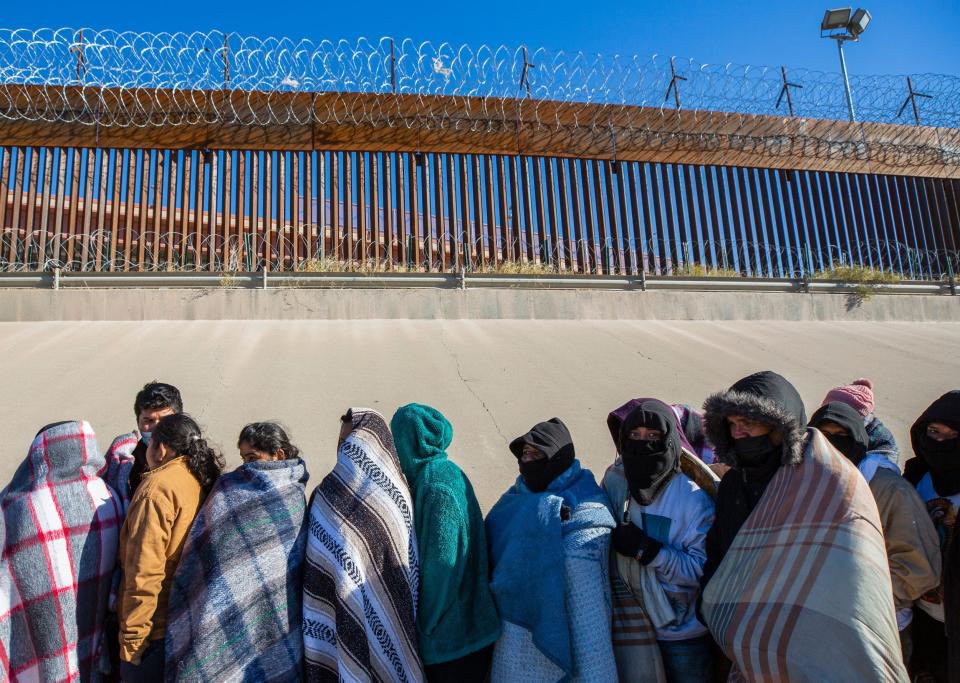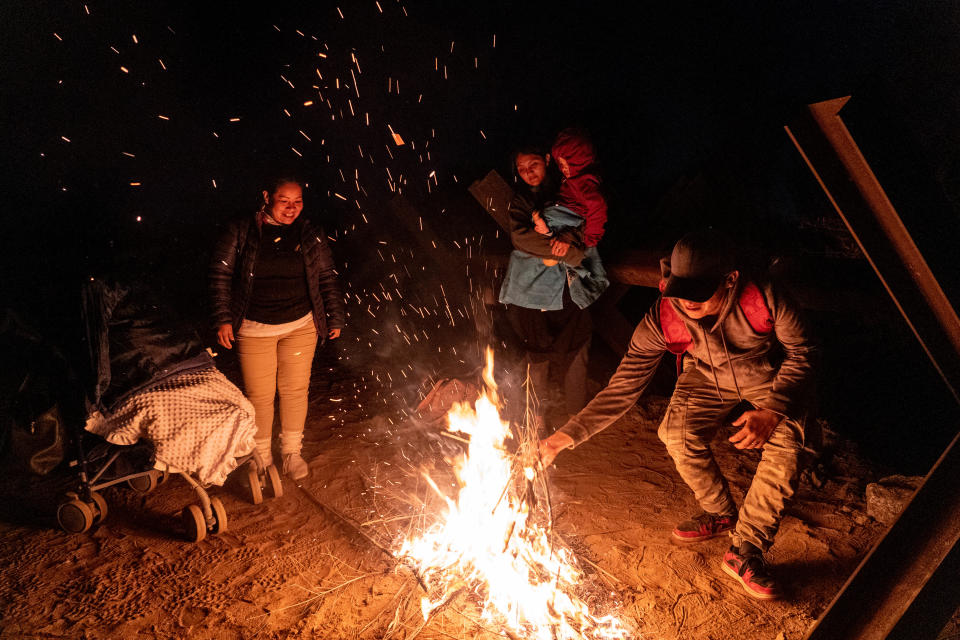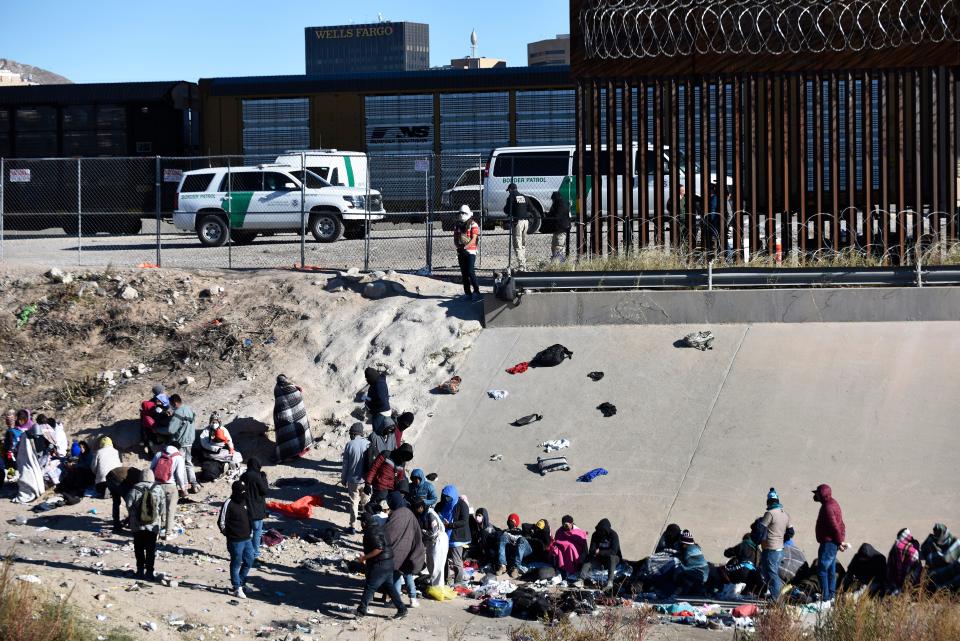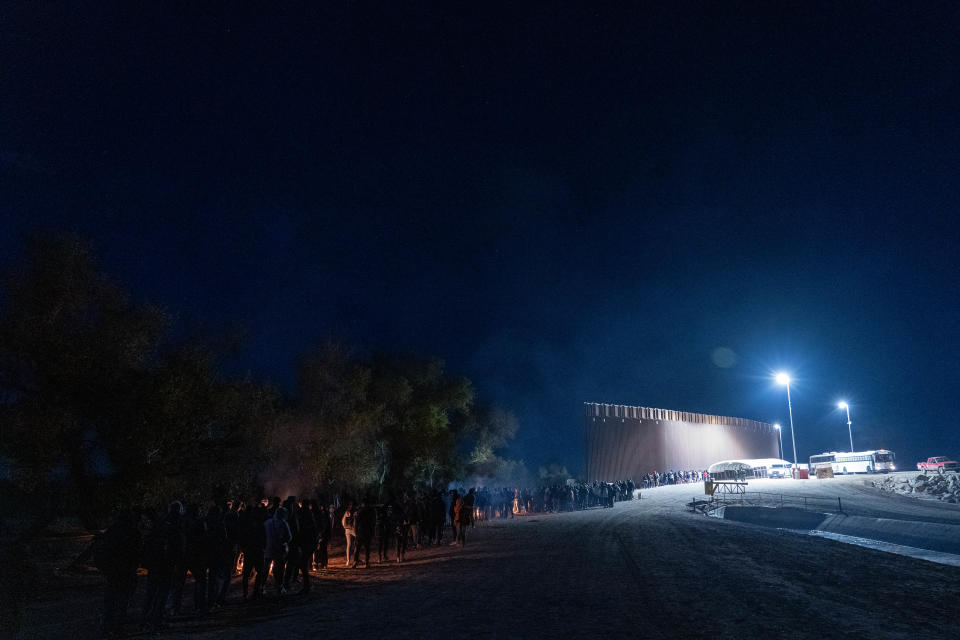Biden asks Supreme Court to reject states' lawsuit but keep Title 42 a little longer
The Biden administration asked the Supreme Court on Tuesday to deny the Arizona-led coalition of 19 conservative states’ request to keep a Trump-era border restriction in place.
The GOP-led states asked the Supreme Court Monday to delay the end of Title 42, a pandemic-era health policy, and to block a lower court’s ruling that found the policy’s implementation broke the law. Following the request, Supreme Court Chief Justice John Roberts temporarily halted Title 42 from lifting on Wednesday and gave the Biden administration until 5 p.m. (EST) Tuesday to respond.
In its filing Tuesday afternoon, the administration asked the Supreme Court to deny the states’ request. If the states' request is denied, the administration asked the court to keep the current administrative stay in place for up to a week longer in order for the administration to prepare for an “orderly transition” and a “full return to operations.”
“Applicants do not claim to be seeking to vindicate any interest in public health or slowing the spread of COVID-19,” U.S. Solicitor General Elizabeth Prelogar stated in the court filing. “Instead, they candidly acknowledge that they wish to use the Title 42 orders as a makeshift immigration-control measure.”

The administration asked that the Supreme Court keep the stay in place until 11:59 p.m. on Dec. 27, if the court denies the states' request before Friday. If the court denies the request on or after Friday, the administration asks that the stay remain until 11:59 p.m. on the second business day following its decision.
The coalition of states filed the emergency stay with the Supreme Court after being denied a request Friday by a federal appeals court. In their bid to the Supreme Court, Republican officials with the states argued that not granting a stay would incite a “crisis of unprecedented proportions at the border” and that the states will suffer “massive” irreparable harm if the policy’s end is not delayed.
The stay does not necessarily indicate which way the Supreme Court will ultimately decide the future of Title 42. The court is expected to release another order in a matter of days.

Title 42 was first invoked in the COVID-19 era in March 2020 under the Trump administration and has continued to be used by the Biden administration as a tool to mitigate migration flows at the southern border. The restriction allows border officials to swiftly expel migrants and shutter ports of entry to asylum seekers at the nation’s borders.
The policy has been used more than 2.4 million times to expel migrants since it was first implemented and has bottled up tens of thousands of migrants in Mexican border cities.
Immigration advocates have applauded the decision to end Title 42 as Arizona’s state leaders, including Gov.-elect Katie Hobbs, have denounced the removal of the policy without a comprehensive plan in place.

Arizona Sen. Kyrsten Sinema, I-Ariz., spoke about the effect that lifting Title 42 would have on Arizona Tuesday in remarks she made on the Senate floor. Sinema detailed her worries for the strain that the end of Title 42 could bring to Arizona’s humanitarian organizations, border communities and U.S. Customs and Border Protection employees.
“Right now we’re experiencing a dangerous tipping point,” Sinema said. “A crisis this big should not and can not be ignored, and in Arizona we cannot afford for this crisis to continue much longer.”
The federal government has failed border communities in Arizona for decades by neglecting to fix our broken immigration system. We’re focused on bipartisan solutions to secure the border, streamline the asylum process, and keep Arizonans safe and secure. https://t.co/9TFGPuyIsn
— Kyrsten Sinema (@SenatorSinema) December 20, 2022
Sinema described her draft framework, which she put together with Sen. Thom Tillis, R-N.C., that would extend Title 42 for another year and give 2 million undocumented youth, known as Dreamers, a path to citizenship. The last-minute draft failed to garner enough support in the Senate and is dead in the chamber.
The restriction was slated to end on Dec. 21 after U.S. District Judge Emmet Sullivan in Washington, D.C., vacated Title 42 in November and gave the Biden administration five weeks to prepare for its end.
Officials are bracing for an initial influx of thousands of migrants attempting to cross the U.S.-Mexico border daily when the restriction is lifted. The end of the restriction could also spark a new wave of migrants to leave their home countries and head to the U.S., experts say.

Migration flows, however, are expected to level out and stabilize in the months following the policy’s termination.
The Biden administration appealed Sullivan's order, focusing on the authority of the U.S. Centers for Disease Control and Prevention to issue orders regulating migration, but maintained it would respect the Dec. 21 deadline.
After Sullivan’s decision, Arizona, alongside 14 other states, filed a motion in federal court seeking to prevent the end of the restriction.
This article originally appeared on Arizona Republic: Biden asks Supreme Court to allow lifting of Title 42 border policy

